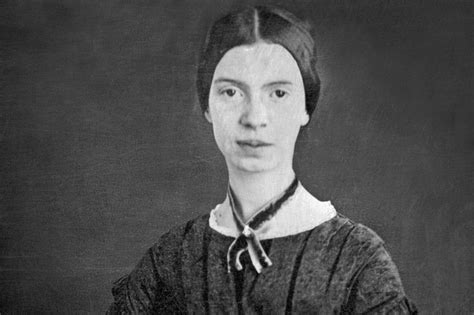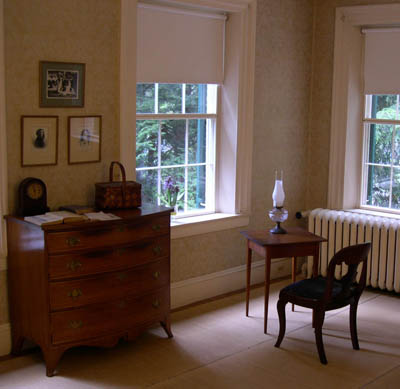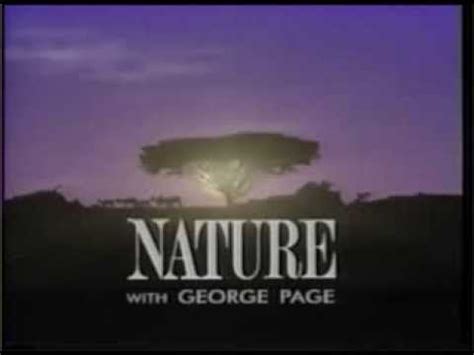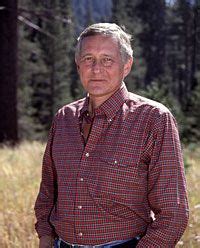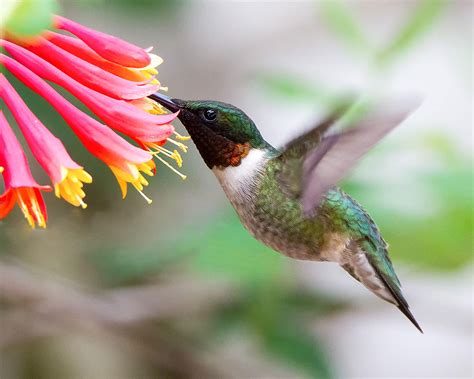|
Word Gems
self-knowledge, authentic living, full humanity, continual awakening
How To Sit Quietly
In A Room Alone
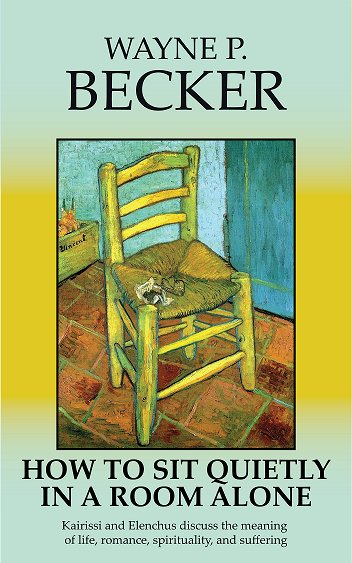
Epigraph
Epilogue: On Becoming a Truly Good Person
Foreword: Adrian Charles Smith
Prologue: The Bedrock of Personhood
Preface: Can Moral Uprightness be Attained by Will-Power?
Introduction: The Voice in the Head
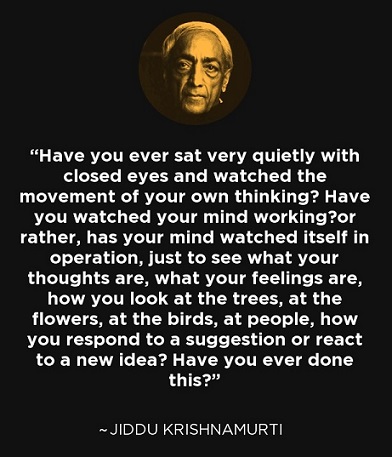
Everything that has a beginning is also subject to an ending.
But there exists a domain beyond the reach of time’s degradation. There, things simply exist, eternally, have always been, have no opposite, no duality, and do not suffer loss.
There are some forms of knowledge which come to us by experiencing an array of opposites: the good and evil, the light and dark, the happiness and joy. But there is another, higher, form of knowledge which cannot be accessed this way because the greatest virtues of God’s mind have no opposite.
Why should we be in a small quiet room when, instead, we could be out there building something, or helping others, or doing something important?
The Antics of a Fretful Two Year-Old
You Cannot Find Yourself 'Out There'
"You must measure success and failure within, not by anything I or anyone else might think."

The Consciousness That Says 'I Am'
The Present Moment versus The Life Within
Feeling "Less" When Others Have "More"
Trying to Outrun the Sadness
Vincent van Gogh: “When facing a flat landscape, I see nothing but eternity. Am I the only one to see it?”
Dr. Joseph Campbell: "You must have a room, a sacred place, a center of transformation."
|
the Dazzling Darkness
The following article features one of the most important concepts of the Word Gems mini-library. In “the Dazzling Darkness,” a place of mystical "austerity" and starkness, we find a cosmic stillness and silence, a oneness and unitive relationship with all creation. It is where we find not only a recognition of “the truth” but a sense of the reality of the Living Energy Within many call God.
|
The Dazzling Darkness
How To Answer A Question
Sun Tzu and The Art Of War: highest-grade military strategy begins in a quiet small room
|
the transforming power of the quiet small room
Emily Dickinson (1830-1886); the poet's bedroom
According to a biographer, Dickinson was known to her neighbors as a “recluse,” an “enigmatic woman ... rarely leaving her house, or even her bedroom, during the last quarter century of her life.”
She’d experienced a trauma around age 30. To a friend in 1862, Emily confided, “I had a terror since September, I could tell to none.” Subsequent writings reveal deep undercurrents of sorrow.
all of us suffer, but not all of us see
What we do know is that she was able to transform her grief, arguably, into the most insightful didactic poetry ever produced -- 1775 offerings -- concerning the essence of consciousness, the nature of suffering, the meaning of life and death, and the true self.
|
Dr. Daniel Robinson of Oxford: experience must be held together in a unity of consciousness, which implies a unity of self, and this inner integration is as much an object of experience as anything is. The quiet small room helps us to discern and make real the inner unity of self.
|
become astronomer of your own soul, the inner cosmos; study yourself - this is the chief aim of your earth-life
“The first thing is to make resolute search within your heart and make the great discovery of the aim and usefulness of your individual life. He who succeeds in this discovery, and holds firmly to it all his earth life, has made a success, whether he wears purple and fine linen, or homespun. You scan the heavens with telescopes, but far wiser is the man who becomes the astronomer of his own soul, [the inner cosmos]...
the inner cosmos, the final frontier
Study yourself carefully; and also study the seeming simple things of Nature, and you will learn that the secret of life is eternal Progress; and that the Earth life, which is of the utmost importance, is only the primary grade of life. Learn your first lessons well, that you may have a solid basis for your future unfoldment.” Channeled testimony from the other side via the mediumship of W. Aber, presented in the book The Guiding Star:
Editor's note: Some of the Krishnamurti lectures offer excellent guidance on how to "become astronomer of one's own soul."
Reflecting the teachings of his April 16, 1968 and December 10, 1970 discussions, I have created two sister-articles, Parts I and II, exploring the nature of pleasure as basis of the world's morality and ego-images, the cause of distance and division among peoples.
READ MORE
|
The small quiet room as venue of determining the authenticity of any proposed course of action. It's where we apply the 'touchstone test,' resulting in an internal resonance with truth.
Thoreau’s Walden Pond as “Quiet Room” of Transformation
Dr. Rupert Sheldrake: Consciousness is a quantum field containing all manner of possibility
|
hey man, let's hear about God realization for a change
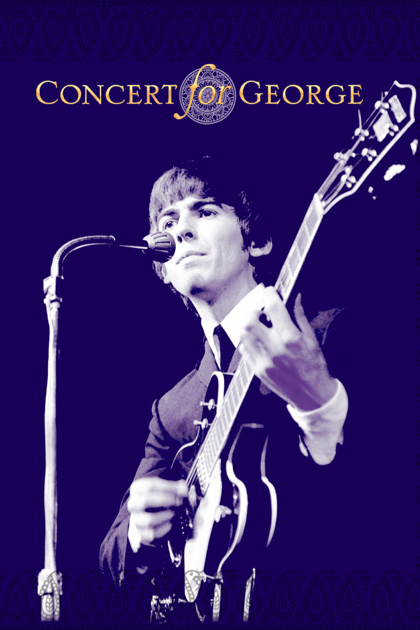
Concert for George
Royal Albert Hall
November 29, 2002
Horse To Water
|
you can take a horse to the water but you can't make him drink, oh no, oh no, oh no, preacher at my church likes to talk about Satan, could be that he knows him, he acts like he's possessed, I said, "hey man, let's hear about God realization for a change," he said, "we ain't got time for that, first hear of the evils of fornication," you can take a horse to the water but you can't make him drink, oh no, oh no, oh no, you can have it all laid out in front of you, but it won't make you think, oh no, oh no, oh no
|
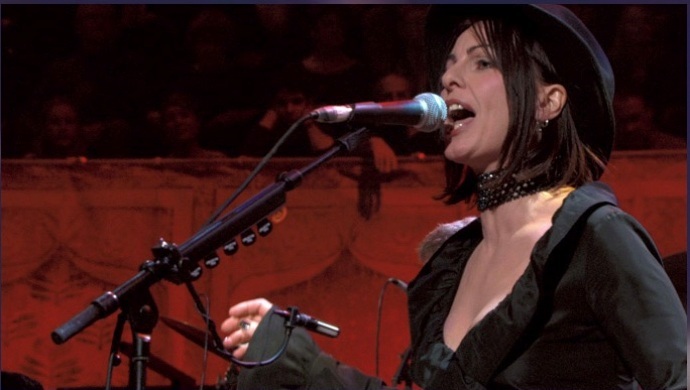
|
listen to Sam Brown’s sensational version of “Horse to Water” at the Concert for George
|
|
Soren Kierkegaard, Instructed By Dread
Charlotte Dresser’s channeled writings reveal that people who cross over in a darkened frame of mind are required, in effect, to enter a “small quiet room.” It’s what they should have been doing all along.
Where are the first-class mediums today? They've been lost in an avoidance of the small quiet room.
|
following the bread-crumbs of every thought, every feeling, back to source
We speak of “going within,” of “standing back” and witnessing the antics of the ego. What does this mean in actual practice? It may signify many things but, one thing for sure, it describes a journey to the center of the ego's domain.
In one of his lectures, Krishnamurti asked the question, have we ever followed the directives of the egoic mind all the way to point of origin? See the entire lecture here:
14.July.1968. "To look at ourselves is one of the most difficult things, to see ourselves as we are. How can we bring about this state of inward awareness? Have you ever tried to examine every thought, every feeling, to trace out the source of these to motive and various layers of the mind? This will reveal the whole content of our conditioning."
PBS Nature with George Page, in my opinion, the
greatest animal-kingdom series ever produced
When we embark upon this self-introspection, we will find that much of what motivates us, especially in the unenlightened state, is lock-step in line with the bio-impulses which govern the activities of our fur-and-feather brethren.
we follow our bellies
In the unenlightened state, we follow our bellies. Our hungers and cravings lead us. Everything we do, essentially, serves to stave off the ghoulish hand of death. We fight for survival. We sell our souls for fleeting moments of bio-stimulation – we call this “happiness” – a crust of bread, an opportunity to procreate, a more secure position to ward off danger. All the beasts of the field live and die by the inglorious credo: eat, procreate, fight, sleep, defecate, guard one's territory. (See Dr. Ernest Becker's related comments in "The Denial Of Death.") This is what passes for living on “animal planet.” As Bugs used to say, "monotonous, isn't it?"
Editor note: The primordial “thrill of the hunt” is well preserved in today’s out-of-proportion emphasis on violent sports. Historians Will and Ariel Durant comment: In the very word game "memories of the chase linger in the pursuit of anything weak or fugitive." There is a reason why Neanderthal sports are so popular, but we hesitate to spell it out.
driven: communion with the beasts of the field
When we lie in bed at night – meaning, when the distractions of the day fail to readily protect the mind from its fears – sense the bio-neediness. Can we feel the animal cravings, the hungers, the fears of survival? – all of which mayhem longs to envelop us as the only reality.
shared biological fellowship
Allow these impulses to invade. Do not fight them but mentally open the inner eyes to see what they’re made of. Permit them to ravage but, this time, follow them back to source. When we do, we will find that much of what we call the ego’s dominion is simply that of shared biological fellowship with, what Saint Francis would say, our “dear brother” animals.
Our animal proclivities are not something "wrong" as such but only inadequate to take us to where we need to go. We are more than bio-fever on legs but contain another nature, a spark of God, begging for unfoldment, whispering of grander destiny.
|
Eckhart Tolle: “You're in a room, you’re facing a wall, just sitting, and then you observe your mind, what it comes up with, and you learn to ‘just be with what is.’ This simple Zen meditation, some would say, is the most difficult meditation - just sitting and being with what is.”
An ancient Spirit Guide, 3500 years on the other side, asserts that crushing burdens of sin and guilt are caused by humankind’s failure to enter into higher self-realization, a relationship between the thinking mind and the deeper person.
We, each of us, are like spokes of a wheel, connected at the hub. That center is Universal Consciousness. The spokes represent our individualizing portions of consciousness, but still connected to the center. Individuality, strictly speaking, is an illusion.
|
a universal theology is impossible, but a universal experience is not only possible but necessary A Course In Miracles
As one surveys the vast corpus of afterlife literature – thousands of near-death experiences, thousands of books with channeled information, thousands of messages via psychic-medium – while there is confirmation for certain elements of the next worlds, one quickly discovers a wide variation of philosophical tenet. Some believe in reincarnation and past lives, but others over there scoff at the notion; some emphasize a missionary zeal for spreading the evidence for the afterlife, but some adopt a more laissez-faire approach; some believe that a new golden age of spiritual knowledge is soon to engulf the Earth, but another camp warns of a potential neo-Dark Age.
In all of this vast diversity of opinion, among the billions on the other side, some of whom communicate with the Earth, how is one to arrive at a measure of clear vision?
All of these sometimes-clashing views represent a philosophy of living, a “theology,” as the Course has it. But theologies and belief-systems represent a mental conditioning, thinking rooted in the past, just private judgments in the marketplace. In all of this division and separation, says the Course, we will never achieve a “universal theology.” What then can bring us together? One thing only – “a universal experience.” We gain this by “going within.”
Two people, in this world or the next, if asked to offer an opinion, will never express an entirely similar view; and this is abundantly clear to the reader of afterlife research. However, if we “go within,” in an honest and authentic way, then, you and I, and everyone, will experience the very same Universal Consciousness.
This kind of apprehension of reality does not reflect belief-system or conditioning - because it is not a product of thinking. As such, it becomes the basis upon which our future cosmic oneness is built.
|
The amazing psychic abilities of WWII veteran Bob Feland serve, in principle, as signpost to the kind of intuitions and premonitions that each of us can and should develop.
You're industrious, you say? busy? proactive, get out there and make it happen? - really? or is it a way of escape and cover-up, a work-ethic fueled by neediness? "I don't have enough," fear and doubt, and "I am not enough"?
|
how to expunge sorrow and other mental confusions
31.Mar.1953. Question: My son is dead. How am I to meet that sorrow? Krishnamurti: We are forever running away from sorrow. We seek for distractions. But when we relinquish self-protective mechanisms, when the mind is not seeking any solution, is completely silent, in that state, sorrow ceases to be.
READ MORE
|
The Course In Miracles makes, what seems to be, the unreasonable and far too generalized, assertion that each and every aspect of the unenlightened mind represents some form of attack-thought. This struck me as too much and inaccurate; however, here’s what I found.
Beyond charitable works and service we will discover another, higher meaning for existence. But this reason for living will come to light only in the small quiet room.
|
"entirely accessible"
"God speaks to us. Shall we not speak to Him? He is not distant. He makes no attempt to hide from us. We try to hide from Him, and suffer from deception. He remains entirely accessible." Course In Miracles, lesson 168
Editor's note: We speak of “searching" for God. But the Course offers a counter-intuitive take on this. God is not "distant,” does not “hide,” but we “hide from Him.” The truth is, we are given as much revelation of God as we can receive. This plenitude is experienced by “going within” via the small quiet room.
|
Jiddu Krishnamurti: Can we rise above all of the provincial cultural conditioning afflicting us, can we transcend our own parochial “html programming” and begin to see reality as it is, not as society says it should be?
August Goforth: The nature of the Authentic Self is to enjoy, rather than endure, an experience. It is always at rest – resting in joy.
When we’re afraid, we want to get rid of the fear. And so we turn on the radio or tv, take a drink, read a novel, go to church, buy something, or commit to a particular course of action - anything rather than face the absolute reality of the fear.
|
‘notice the disorder’
Krishnamurti frequently admonishes “notice the disorder,” do not fight or condemn what is seen with the inner eyes but simply acknowledge.
But, exactly which aspect of the disorder are we to focus on?
We are not to focus on the disturbing “images” themselves. These can be quite horrid, and we don’t want to encourage or fix these upon the memory. Yet, while we do not like their presence, we are not to “fight” these images. How to handle this?
I have learned, by trial and error, how this process is to work. Try it for yourself and find the right way, for you, to mentally apprehend. Instead of “fighting” the image, or saying “I ought not to be seeing this in my head” -- which creates a sense of conflict and strengthens the ego – try to switch one’s focus to the underlying energy. Yes, there may temporarily be a sordid image by which the ego torments, but can you “go beneath” the image and focus on the energy that’s propping it up? You’ll need to work with this, trying different approaches, to see what I mean, but, when it works for you, you will easily slip into a mode of simply “noticing the disorder” - not the image but the underlying energy.
This, I believe, and sense, is an incredibly important mental skill. The mind serves us in many ways but, one primary way, is to become for us a virtual “radar screen” which will immediately evaluate all energies that cross its field of purview. When we become skilled at this, we will instantly perceive an energy that is “out of alignment” with the spirit of God.
The rational part of the brain is not involved at all. It’s pure intuition at work. And now we’ve entered the realm of which the apostle Paul spoke concerning those who “live in the Spirit.” These, he said, judge all things, discern all things. And it’s done instantly, without the rational mind making a decision. Instead, the mind, now sensitized to alien-ungodly energies, automatically flashes a warning on the “radar screen” of the spirit-led mind.
And this entire process of discernment is developed by “simply noticing the inner disorder.” One’s ability in this area of expanding consciousness will just grow and grow, unlocking more and more of the soul’s inner riches. As Kairissi joked, “next thing you know, you’re 5 billion years old and aware of every life form in the universe.”
|
Simply notice: We grow spiritually - that is, strengthen an attunement with God - not by trying very hard but “simply noticing” what’s going on in one’s own mind.
The small quiet room as venue of the famous life-review: why wait till you cross over? - every day is judgment day
|
Will we still have to battle the ego's selfishness when we transition to Summerland? Can it be removed? Do even the ancient Spirit Guides still have to deal with this egocentrism?
Further, there are many teachers on the other side who say it’s easier to learn our ‘kindergarten’ lessons here, on the sorrowful planet Earth. What do they mean by this?
READ MORE
|
The Last Kiss: John and Mary are constitutionally unable to sit quietly in a room alone.
"Safe in my garden, an ancient flower blooms."
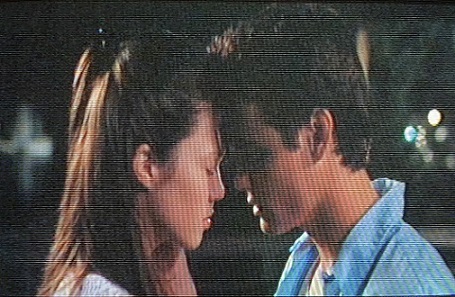
|
The Dazzling Darkness is a concept representing a frame of mind untrammeled by the dysfunctional ego. Therein, freed from base-alloy lower-nature inclinations, one might apprehend not only the identity of one’s true mate but also a realization of the living presence of God in one’s life. READ MORE
|
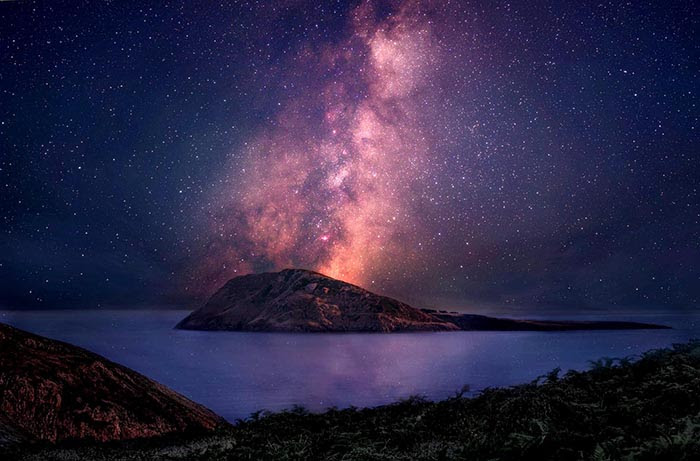
How to Sit Quietly in a Room Alone
Conclusion: Kairissi and Elenchus, the "anthropic principle"
Epilogue: Can people change? – no, really, I mean real change
Editor's Review, Many Years Later: what I've learned since the original publication of this book
|
all I want to do is try and find myself

|
in searching for the way to go I've followed all the rules, the way they say to choose between the wise men and the fools, I listen to the words they say, I read what I should read, I do whatever's right to do, try to be what I should be, someone let me in I think the sky is falling, seems I've gotten lost on my way, all I want to do is try and find myself, come and let me look in your eyes, come and let me look in your eyes, but wisdom isn't underground nor on a mountainside, and where am I to take myself, there's no place here to hide, where can I hide, all across the universe the stars are fading, seems we've gotten lost on our way, all I want to do is try and find myself, come and let me look in your eyes, come and let me look in your eyes, come and let me look in your eyes…
|
all I want to do is try and find myself, come and let me look in your eyes
|
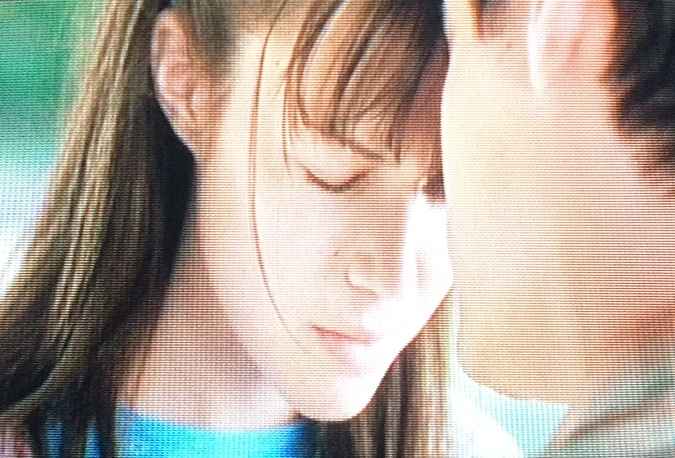
Copyright
|



